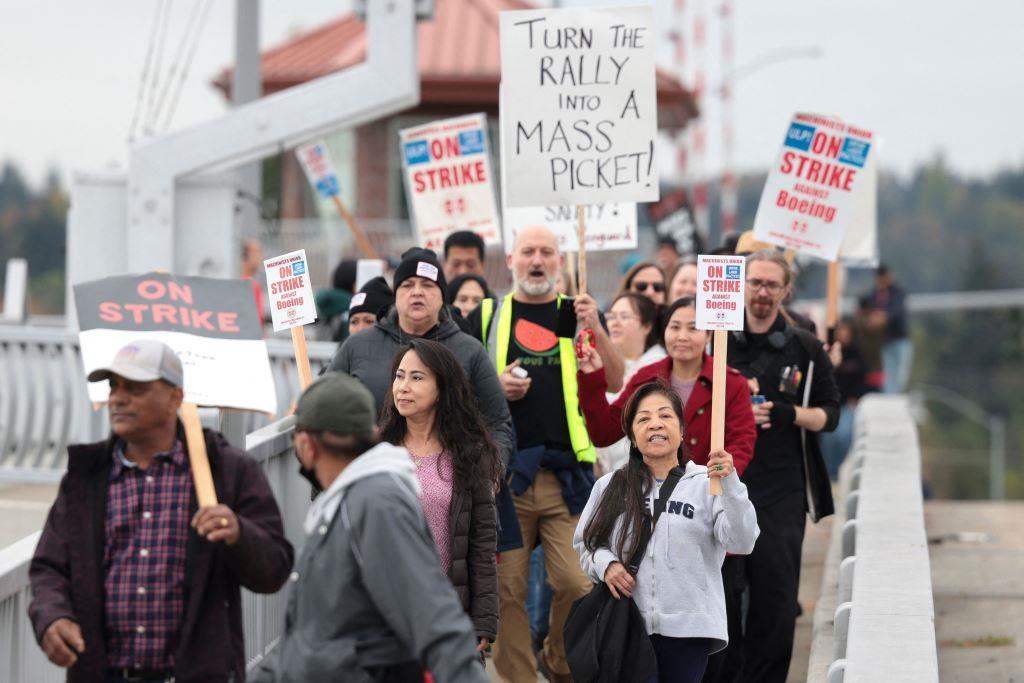NEW YORK (AFP) – US aviation giant Boeing has once again improved the conditions in its contract offer to thousands of striking workers, hoping to put an end to a painful strike that has paralyzed its two main factories for seven weeks.
The International Association of Machinists and Aerospace Workers District 751, the union which represents more than 33,000 workers who went on strike on September 13 in the Seattle area, on Thursday endorsed the new offer and set a vote for Monday.
The offer includes a 38 per cent wage increase over the four years of the contract and a USD12,000 ratification bonus, up from USD7,000 in the previous proposal, Boeing said in a separate statement.
“Your union is endorsing and recommending the latest IAM/Boeing contract proposal. It is time for our members to lock in these gains and confidently declare victory,” the IAM chapter said.

This was the fourth offer made by Boeing since early September, but the third on which members have been asked to vote.
Members overwhelmingly rejected an offer of a 25 pe rcent raise over four years on September 12. A second offer, which promised a 35 pe rcent pay rise, was rejected by nearly two-thirds of members last week.
The union has consistently asked for a 40 per cent salary increase.
“We believe asking members to stay on strike longer wouldn’t be right as we have achieved so much success,” the union said.
“We encourage all of our employees to learn more about the improved offer and vote on Monday, November 4,” Boeing said, noting that the average machinist will make USD119,309 by the end of the contract if the offer is accepted, up from USD75,608.
The other conditions in the contract remain unchanged, such as an annual bonus, and the company’s commitment to build its next plane — expected in 2025 — in the Seattle area, where Boeing was founded in July 1916.
Union requests to restore a pension plan discarded in 2014 were not honored.
It remains to be seen if union members will heed the endorsement of the contract by their leaders and head back to work. A simple majority is required for ratification.
An end to the strike is needed by Boeing, which has faced separate financial difficulties in addition to the work stoppage that paralysed the two factories that assemble the 737 MAX, the 777 and other planes.
Only the factory responsible for the 787 Dreamliner in South Carolina has been operational, but it is only producing four planes a month.
Boeing has made a series of moves since mid-September to help ease its cash crunch.
In mid-October, it announced a 10 per cent reduction in its global workforce, amounting to around 17,000 positions cut. This week, it launched a stock offering expected to raise about USD21 billion.
Even before the strike, Boeing had slowed production in its commercial plane division to ensure greater attention to safety protocols after a 737 MAX flown by Alaska Airlines was forced to make an emergency landing in January when a fuselage panel blew out mid-flight.
The near-catastrophe — coming after two fatal 737 MAX crashes in 2018 and 2019 that claimed 346 lives — put Boeing under intense regulatory oversight once again.
Boeing reported a whopping USD6.2 billion quarterly loss last week.



















































